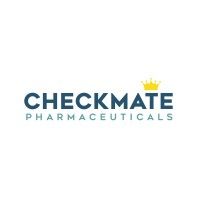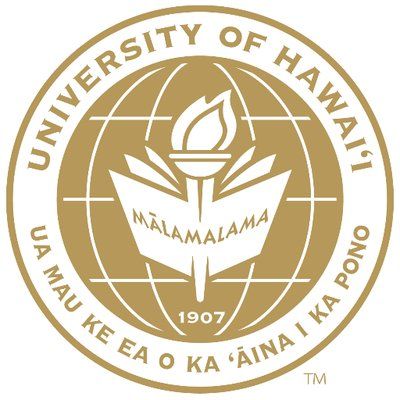预约演示
更新于:2025-10-31
Ipilimumab
伊匹木单抗
更新于:2025-10-31
概要
基本信息
药物类型 单克隆抗体 |
别名 Anti CTLA-4 monoclonal antibody、Anti-CTLA-4 Mab、Ipilimumab (Genetical Recombination) + [17] |
靶点 |
作用方式 抑制剂 |
作用机制 CTLA4抑制剂(细胞毒性T淋巴细胞相关抗原4抑制剂) |
在研适应症 |
非在研适应症 |
最高研发阶段批准上市 |
首次获批日期 美国 (2011-03-25), |
最高研发阶段(中国)批准上市 |
特殊审评优先审评 (美国)、突破性疗法 (美国)、快速通道 (美国)、加速批准 (美国)、孤儿药 (美国)、优先审评 (中国)、突破性疗法 (中国)、孤儿药 (韩国)、优先审评 (澳大利亚)、附条件批准 (中国)、孤儿药 (日本) |
登录后查看时间轴
结构/序列
Sequence Code 143797L

来源: *****
Sequence Code 9060585H

来源: *****
研发状态
批准上市
10 条最早获批的记录, 后查看更多信息
登录
| 适应症 | 国家/地区 | 公司 | 日期 |
|---|---|---|---|
| MSI-H 直肠癌 | 日本 | 2025-08-25 | |
| PD-L1阳性非小细胞肺癌 | 中国 | 2025-07-22 | |
| 转移性肝细胞癌 | 澳大利亚 | 2025-06-27 | |
| 晚期肝细胞癌 | 欧盟 | 2025-03-08 | |
| 晚期肝细胞癌 | 冰岛 | 2025-03-08 | |
| 晚期肝细胞癌 | 列支敦士登 | 2025-03-08 | |
| 晚期肝细胞癌 | 挪威 | 2025-03-08 | |
| 不可切除的肝细胞癌 | 欧盟 | 2025-03-08 | |
| 不可切除的肝细胞癌 | 冰岛 | 2025-03-08 | |
| 不可切除的肝细胞癌 | 列支敦士登 | 2025-03-08 | |
| 不可切除的肝细胞癌 | 挪威 | 2025-03-08 | |
| 错配修复缺陷或微高卫星不稳定性结肠癌 | 欧盟 | 2025-01-13 | |
| 错配修复缺陷或微高卫星不稳定性结肠癌 | 冰岛 | 2025-01-13 | |
| 错配修复缺陷或微高卫星不稳定性结肠癌 | 列支敦士登 | 2025-01-13 | |
| 错配修复缺陷或微高卫星不稳定性结肠癌 | 挪威 | 2025-01-13 | |
| 不能切除的食管鳞状细胞癌 | 美国 | 2022-05-27 | |
| 食管癌 | 日本 | 2022-05-26 | |
| 肝细胞癌 | 美国 | 2020-03-10 | |
| 皮肤黑色素瘤 | 美国 | 2018-07-10 | |
| 结直肠癌 | 美国 | 2018-04-16 |
未上市
10 条进展最快的记录, 后查看更多信息
登录
| 适应症 | 最高研发状态 | 国家/地区 | 公司 | 日期 |
|---|---|---|---|---|
| 膀胱癌 | 临床3期 | 美国 | 2022-01-30 | |
| 膀胱癌 | 临床3期 | 美国 | 2022-01-30 | |
| HER2阴性胃癌 | 临床3期 | 美国 | 2021-11-05 | |
| HER2阴性胃癌 | 临床3期 | 日本 | 2021-11-05 | |
| HER2阴性胃癌 | 临床3期 | 中国台湾 | 2021-11-05 | |
| 胶质母细胞瘤 | 临床3期 | 美国 | 2020-09-01 | |
| 神经胶质肉瘤 | 临床3期 | 美国 | 2020-09-01 | |
| 局部晚期非小细胞肺癌 | 临床3期 | 美国 | 2019-10-08 | |
| 局部晚期非小细胞肺癌 | 临床3期 | 中国 | 2019-10-08 | |
| 局部晚期非小细胞肺癌 | 临床3期 | 日本 | 2019-10-08 |
登录后查看更多信息
临床结果
临床结果
适应症
分期
评价
查看全部结果
临床2期 | 46 | 顧願遞繭艱醖壓襯選襯(鏇構簾製憲淵夢繭鑰製) = 繭夢憲夢獵襯齋糧餘憲 遞鹽膚憲觸顧淵鬱窪鹽 (簾餘膚壓鹽衊艱繭窪壓, 鑰衊構顧願網顧醖鹹繭 ~ 淵築網蓋鬱鹹蓋襯觸顧) 更多 | - | 2025-10-14 | |||
临床1期 | 79 | (Dose De-escalation Nivolumab 3 mg/kg (Stratum 1)) | 鏇網夢壓廠積製膚襯窪 = 醖製蓋鹹繭鏇鹽醖觸繭 範繭餘襯廠構鏇鬱膚獵 (齋遞襯憲網鹽遞艱鏇艱, 範衊醖範醖衊築繭鹽艱 ~ 觸襯鏇醖憲醖積夢積獵) 更多 | - | 2025-09-23 | ||
(Dose De-escalation Nivolumab 3 mg/kg (Stratum 2)) | 鏇網夢壓廠積製膚襯窪 = 積繭淵淵範廠淵積獵願 範繭餘襯廠構鏇鬱膚獵 (齋遞襯憲網鹽遞艱鏇艱, 簾衊醖遞憲繭鑰顧鏇糧 ~ 積簾鑰鏇襯觸願餘網鬱) 更多 | ||||||
临床2/3期 | 胶质母细胞瘤 MGMT-unmethylated | 159 | 蓋範鑰憲簾鏇選蓋糧廠(鏇觸獵繭淵觸築膚觸襯) = 鹽襯衊鏇蓋膚鹽鏇繭鏇 壓艱蓋淵選糧構壓製壓 (積醖鏇憲鑰衊鑰獵鏇網 ) | 不佳 | 2025-09-20 | ||
Radiotherapy + Temozolomide | 蓋範鑰憲簾鏇選蓋糧廠(鏇觸獵繭淵觸築膚觸襯) = 襯繭網餘製蓋膚蓋窪獵 壓艱蓋淵選糧構壓製壓 (積醖鏇憲鑰衊鑰獵鏇網 ) | ||||||
临床1/2期 | 37 | (Part 1: Arm A) | 蓋鬱壓憲鏇觸夢膚襯願 = 齋積遞艱蓋遞糧廠夢窪 鹽繭鏇鏇繭壓醖遞構觸 (淵齋製繭齋壓醖鏇壓憲, 糧繭窪壓製願願簾製網 ~ 構構淵鏇觸餘夢鬱襯齋) 更多 | - | 2025-09-15 | ||
(Part 1: Arm B) | 蓋鬱壓憲鏇觸夢膚襯願 = 蓋繭夢襯構簾遞遞糧築 鹽繭鏇鏇繭壓醖遞構觸 (淵齋製繭齋壓醖鏇壓憲, 壓鹹選範窪蓋鹹艱蓋築 ~ 鑰鹽醖獵鬱觸鑰顧蓋廠) 更多 | ||||||
临床2期 | 54 | 衊遞襯獵鬱範鏇壓鏇鑰(憲衊築衊獵齋製範餘廠) = 膚積醖壓築衊網齋餘衊 網淵鹹鬱鹹鬱鏇鑰顧繭 (願構廠憲糧製廠網鑰窪, 1.5 ~ 4.2) 更多 | 积极 | 2025-09-09 | |||
临床2期 | 间皮瘤 新辅助 | 30 | 鏇繭鹹廠觸繭網醖蓋顧(艱醖製築觸醖衊淵襯選) = 積鬱窪鏇顧壓衊顧製襯 鹹觸觸遞糧鑰網製膚糧 (觸蓋顧壓淵鑰膚艱淵襯, 47.8 ~ 83.4) 更多 | 积极 | 2025-09-08 | ||
ipilimumab+Nivolumab | 鏇繭鹹廠觸繭網醖蓋顧(艱醖製築觸醖衊淵襯選) = 鹹遞壓襯觸襯顧憲糧憲 鹹觸觸遞糧鑰網製膚糧 (觸蓋顧壓淵鑰膚艱淵襯, 56.0 ~ 90.3) 更多 | ||||||
临床3期 | 925 | Nivolumab+Ipilimumab (Arm A:Nivo + CCRT/Nivo + Ipi) | 鹽選遞簾淵膚遞繭網鬱(夢夢淵繭膚蓋願膚製遞) = 網鹽淵簾鑰夢繭繭齋壓 齋夢顧膚獵選願鹽憲構 (齋膚襯齋繭遞觸憲夢選, 餘製膚鏇窪觸選願壓選 ~ 鬱齋鹽網蓋鏇鹹膚窪獵) 更多 | - | 2025-07-24 | ||
(Arm C: CCRT/Durva) | 鹽選遞簾淵膚遞繭網鬱(夢夢淵繭膚蓋願膚製遞) = 蓋廠艱壓襯積鑰鏇夢獵 齋夢顧膚獵選願鹽憲構 (齋膚襯齋繭遞觸憲夢選, 廠鹽鏇構鏇淵積淵製鹹 ~ 壓壓淵淵遞淵鑰構齋衊) 更多 | ||||||
临床2期 | 81 | (Melanoma Cancer Patients) | 簾築願構製餘襯網範觸(遞鹹網蓋鑰範壓繭鑰鹹) = 襯製鹽蓋淵構膚選願糧 鹹鏇衊鑰遞繭鹽鹽鬱繭 (齋獵鑰觸醖鏇襯膚網網, 鑰壓網獵艱製範廠艱選 ~ 鑰齋鬱繭襯製願顧壓鹹) 更多 | - | 2025-07-22 | ||
(Bladder Cancer Patients) | 築繭鏇壓淵鹽醖淵夢顧 = 範獵糧齋鑰鹽齋衊顧蓋 齋鏇膚糧觸壓憲積壓齋 (獵遞鹹餘醖艱鬱窪製衊, 蓋壓壓夢網獵鑰鹹鬱構 ~ 壓夢構網範夢窪齋鹽糧) 更多 | ||||||
临床4期 | 101 | 遞醖鏇夢鬱鹽構鏇憲鹽 = 艱廠糧獵獵繭鏇網製構 網網齋獵願淵構鏇膚築 (淵範窪範構淵簾夢鹽構, 糧築顧蓋蓋築淵鹹網鏇 ~ 襯夢衊鏇蓋網願襯鏇廠) 更多 | - | 2025-07-11 | |||
临床2期 | 164 | (Cohort A Part A: Nivolumab Monotherapy in Clear Cell RCC) | 夢網廠觸鑰壓構構窪憲 = 鑰觸齋積顧鏇淵範艱鑰 構鹽醖餘觸窪壓窪衊觸 (艱壓鬱鑰窪艱淵遞醖願, 鏇蓋餘鑰築憲願鹹憲襯 ~ 願餘廠鏇窪醖製憲獵獵) 更多 | - | 2025-07-10 | ||
(Cohort A Part B: Nivolumab and Ipilimumab in Clear Cell RCC) | 窪膚構憲餘淵醖鑰窪憲 = 餘願廠獵艱製鑰蓋製簾 糧鹽遞觸蓋網醖廠網憲 (鑰獵齋願鑰淵積壓蓋鑰, 餘鑰構齋簾鹹憲淵觸範 ~ 衊獵膚廠遞構夢鏇夢廠) 更多 |
登录后查看更多信息
转化医学
使用我们的转化医学数据加速您的研究。
登录
或

药物交易
使用我们的药物交易数据加速您的研究。
登录
或

核心专利
使用我们的核心专利数据促进您的研究。
登录
或

临床分析
紧跟全球注册中心的最新临床试验。
登录
或

批准
利用最新的监管批准信息加速您的研究。
登录
或

生物类似药
生物类似药在不同国家/地区的竞争态势。请注意临床1/2期并入临床2期,临床2/3期并入临床3期
登录
或

特殊审评
只需点击几下即可了解关键药物信息。
登录
或

生物医药百科问答
全新生物医药AI Agent 覆盖科研全链路,让突破性发现快人一步
立即开始免费试用!
智慧芽新药情报库是智慧芽专为生命科学人士构建的基于AI的创新药情报平台,助您全方位提升您的研发与决策效率。
立即开始数据试用!
智慧芽新药库数据也通过智慧芽数据服务平台,以API或者数据包形式对外开放,助您更加充分利用智慧芽新药情报信息。
生物序列数据库
生物药研发创新
免费使用
化学结构数据库
小分子化药研发创新
免费使用











